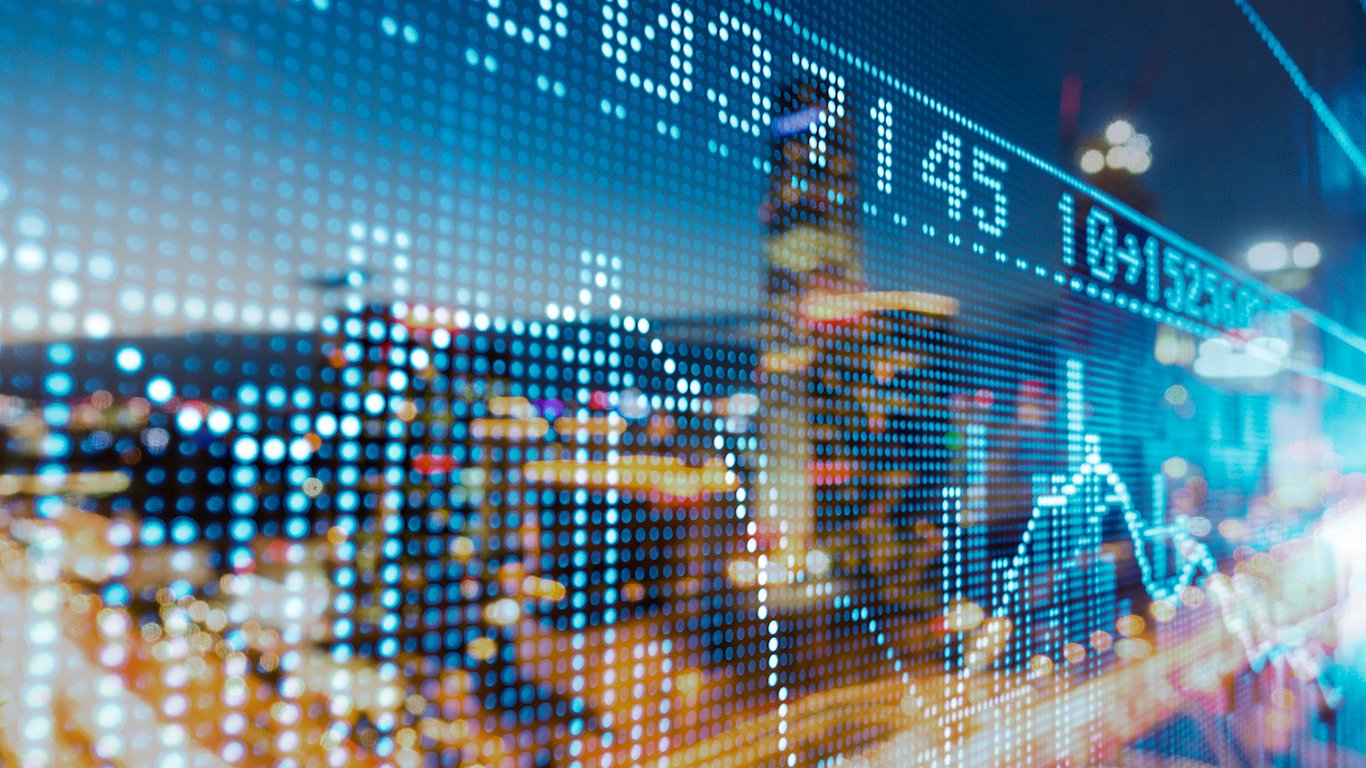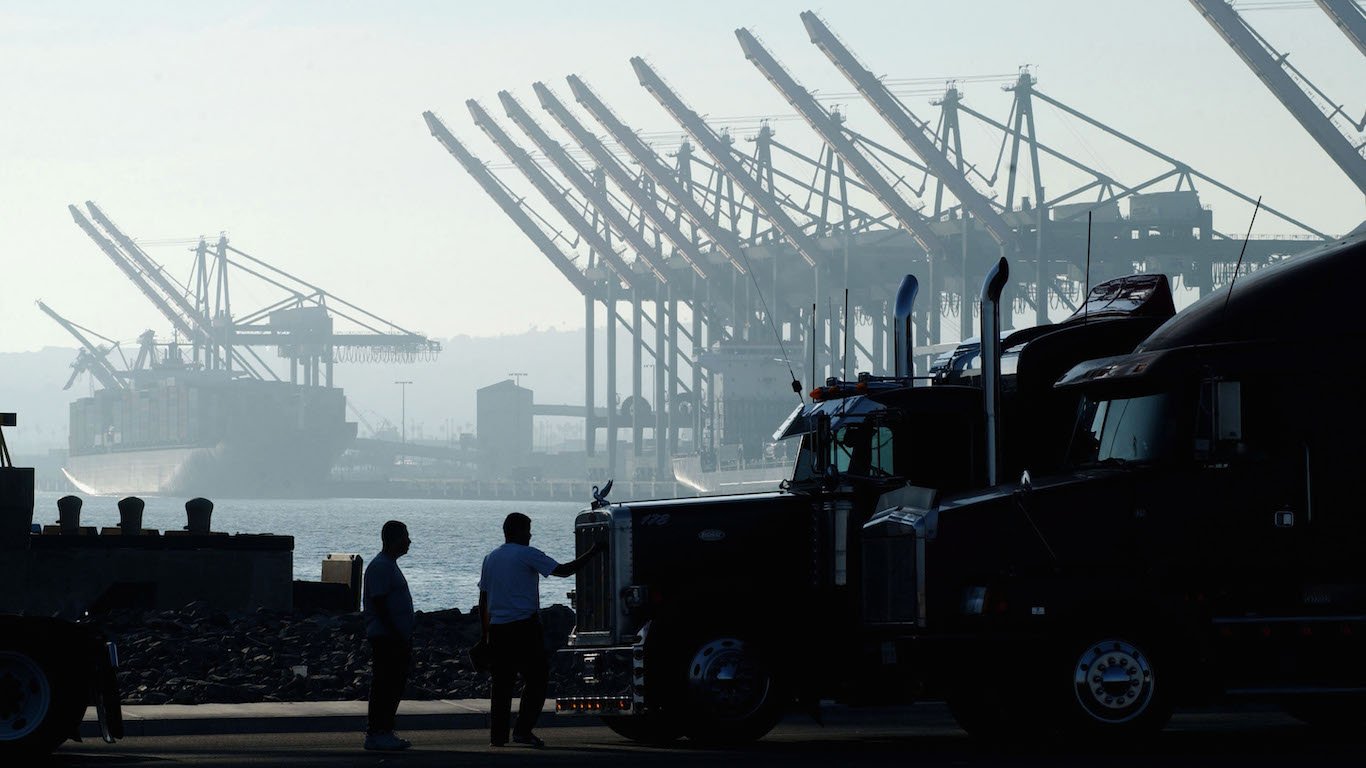

In theory, to do better than the market does over long periods, there is a benefit to balance in an equity portfolio. This takes into account the fact that fast-growing companies with fast-rising stocks tend to be volatile, both in earnings and share price. Companies with modest, unspectacular and steady growth coupled with solid balance sheets usually have stocks that rise (and fall) modestly and slowly. These companies also often pay dividends, which is a cash distribution safety net for equity investors.
[in-text-ad]
24/7 Wall St. has put together a list of well-known, mostly very large, publicly traded corporations that are a combination of safe harbor stocks and stocks of powerful tech firms. The tech stocks rose rapidly over the course of the decade-long bull market. Almost all the companies on the list have longer-term proven success and prospects. Most dominate their industries and stand ahead of their competitors, both in market share and financially.
The Solid and Steady Old-World Companies
Nike Inc. (NYSE: NKE) is basically a running shoe company founded in 1964 that expanded into the athletic apparel business. It has become the global leader in the industry. Among the benefits Nike has is that the appetite for casual apparel does not fluctuate with the economy a great deal. Its only real competitor is Germany’s Adidas. Nike’s revenue has been close to flat at $38 billion for the past four years. Its EBITDA has dropped slightly over the same period, but not enough to be cause for long-term concern. Nike has steadily paid a dividend of $0.98 per share. It has over $8 billion in cash. The stock is up 100% in the past five years, compared to 75% for the S&P 500.
McDonald’s Corp. (NYSE: MCD), founded in 1940, is the largest fast-food company in America and has a footprint around the world with over 38,000 locations. A number of other casual dining operations, from Subway to Starbucks to Burger King, have taken a run at McDonald’s leadership. None has been entirely successful. Revenue has been relatively steady in the past three years at just over $21 billion. McDonald’s has returned billions of dollars back to shareholders via share buybacks and dividends. Currently, the $5 dividend represents a 2.38% yield. The stock is up 123% in five years.
Verizon Communications Inc. (NYSE: VZ) is one of the two largest telecom companies in the United States. The other is AT&T. Verizon, founded in 1983, has over 150 million wireless subscribers, over 13 million FiOS fiber to the home customers and a media and advertising unit. Revenue has risen modestly over the past three years to $131 billion.
Verizon has a dividend of $2.46, which is a yield of 4.14%, one of the highest among America’s 50 largest public companies. Verizon’s shares are up 28% over the past five years, compared to that 75% for the S&P 500. Verizon is expected to get a spurt of growth as American consumers and businesses convert to the 5G ultrafast wireless standard.
Walmart Inc. (NYSE: WMT) is the world’s largest retailer. Founded in 1945, it has over 11,500 stores. It employs 2 million people around the world, and of these, about half are in the United States. Walmart’s revenue has risen modestly over the past four years and in the most recently reported fiscal period totaled $542 billion.
Walmart shareholders have worried for years that Amazon.com would continue to erode its revenue as people moved shopping online. A surge in sales at Walmart.com during the COVID-19 pandemic has proven otherwise. Walmart’s shares are up 103% in the past five years. Its dividend of $2.16 represents a 1.58% yield.
The Technology Titans
Apple Inc. (NASDAQ: AAPL), founded in 1977, is the most valuable company in the United States. It has a market capitalization of $2.1 trillion, after a share price run-up of 339% in the past five years, most of which came in the final two years of the period. Apple’s revenue, along with its bottom line, has risen almost continuously over the past decade and in its most recent fiscal year reached $275 billion.
Thank you for reading! Have some feedback for us?
Contact the 24/7 Wall St. editorial team.
 24/7 Wall St.
24/7 Wall St.


